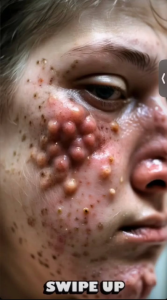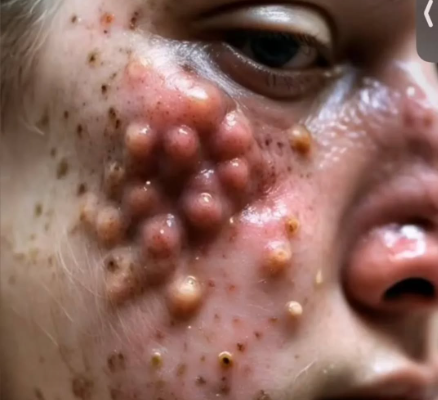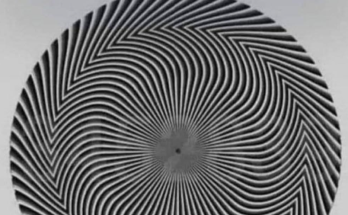🌋 What Is Acne, Really?
Acne isn’t just a few pimples—it’s a chronic skin condition that affects the hair follicles and sebaceous (oil) glands. These glands produce sebum, an oily substance meant to keep your skin hydrated. But when sebum production goes into overdrive and dead skin cells don’t shed properly, pores get clogged. Add bacteria to the mix, and voilà: inflammation, redness, and those pesky bumps.
🔍 The Core Causes of Acne
Let’s break down the main culprits:
1. Excess Sebum Production
- Triggered by hormonal changes, especially during puberty.
- Sebum clogs pores and creates the perfect environment for bacteria.
2. Dead Skin Cells
- Normally, your skin sheds dead cells.
- When this process malfunctions, cells stick together and block pores.
3. Bacteria (Cutibacterium acnes)
- This bacteria lives on your skin naturally.
- When trapped in clogged pores, it multiplies and causes inflammation.
4. Hormonal Fluctuations
- Androgens (male hormones present in all genders) increase during puberty.
- Hormonal changes during menstruation, pregnancy, or stress can also trigger acne.
5. Genetics
- If your parents had acne, you’re more likely to develop it.
- Genetic predisposition affects skin type, oil production, and inflammation response.
🧠 The Emotional Side of Acne
Acne isn’t just physical—it can deeply affect your self-esteem. Studies show that people with acne often experience:
- Social anxiety
- Depression
- Body image issues
It’s not vain to care about your skin. Your face is how you meet the world, and acne can feel like an unwanted mask.
🧪 Types of Acne (Because It’s Not All the Same)
| Type | Description | Severity |
|---|---|---|
| Whiteheads | Closed clogged pores | Mild |
| Blackheads | Open clogged pores (dark due to oxidation) | Mild |
| Papules | Small red bumps without pus | Moderate |
| Pustules | Red bumps with white pus tips | Moderate |
| Nodules | Painful lumps under the skin | Severe |
| Cysts | Deep, pus-filled painful lumps | Severe |
Each type requires different treatment approaches. Cystic and nodular acne often need medical intervention.
🍔 Lifestyle Triggers (That Sneak Up on You)
1. Diet
- High glycemic foods (white bread, sugary snacks) spike insulin, which can increase oil production.
- Dairy may trigger acne in some people due to hormones present in milk.
2. Stress
- Stress hormones like cortisol can increase oil production.
- Stress also affects sleep and immune response, worsening acne.
3. Skincare Products
- Comedogenic products clog pores.
- Harsh cleansers strip the skin, causing it to produce more oil.
4. Environment
- Humidity and pollution can clog pores.
- Sweat mixed with bacteria is a recipe for breakouts.
5. Touching Your Face
- Hands carry bacteria.
- Picking at pimples can cause scarring and spread infection.
🧬 Hormonal Acne: The Adult Plot Twist
You thought you left acne behind in high school? Think again. Hormonal acne often appears in adults, especially women, and tends to show up around the jawline and chin. It’s linked to:
- Menstrual cycles
- Polycystic ovary syndrome (PCOS)
- Stress
- Birth control changes
🧴 Treatment Options: From Gentle to Hardcore
Over-the-Counter (OTC)
- Benzoyl Peroxide: Kills bacteria and reduces inflammation.
- Salicylic Acid: Helps exfoliate and unclog pores.
- Retinoids: Promote cell turnover and prevent clogged pores.
Prescription
- Topical Antibiotics: Reduce bacteria and inflammation.
- Oral Antibiotics: For moderate to severe acne.
- Hormonal Treatments: Birth control pills or anti-androgens like spironolactone.
- Isotretinoin (Accutane): A powerful option for severe, resistant acne.
Natural Remedies (with caution)
- Tea tree oil
- Zinc supplements
- Green tea extract
Always consult a dermatologist before trying new treatments—especially if your acne is painful or persistent.
🧼 Prevention: Your Skin’s Daily Ritual
- Wash your face twice a day with a gentle cleanser.
- Use non-comedogenic moisturizers and sunscreens.
- Avoid over-exfoliating.
- Change pillowcases regularly.
- Stay hydrated and eat a balanced diet.
🧠 Acne and Identity: A Gentle Reflection
Acne can feel like a betrayal—your own skin turning against you. But it’s also a reminder that your body is alive, responding, adapting. It’s not a flaw; it’s a signal. And while it may feel isolating, acne is one of the most common human experiences. You’re not alone in this.
💬 Final Thought
Acne is complex. It’s biological, emotional, environmental, and sometimes just plain mysterious. But it’s also manageable, treatable, and not a reflection of your worth. Whether you’re dealing with a few stubborn spots or a full-blown breakout, your skin doesn’t define you—but understanding it can help you reclaim your confidence.


